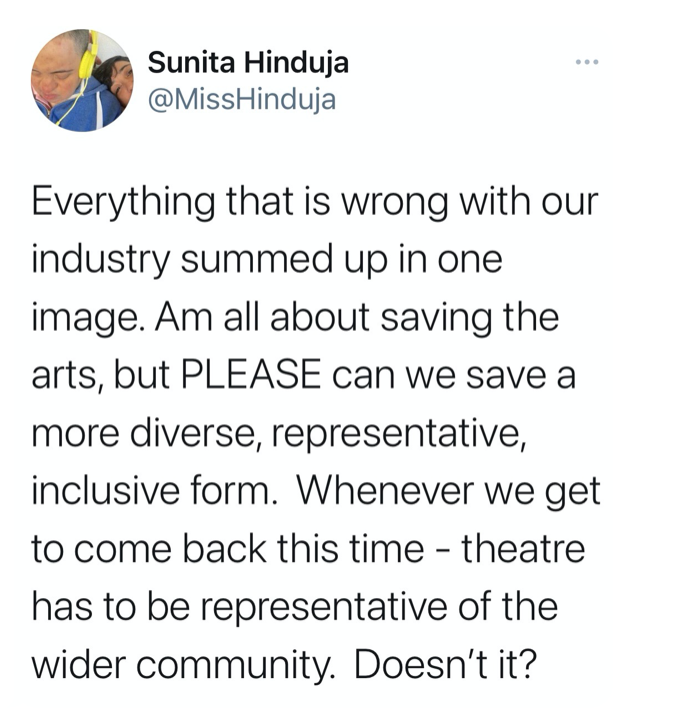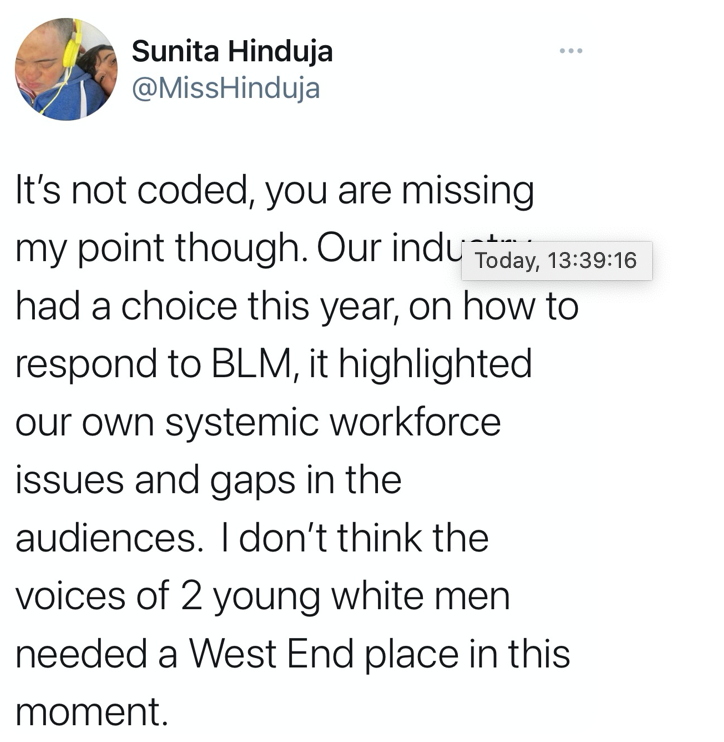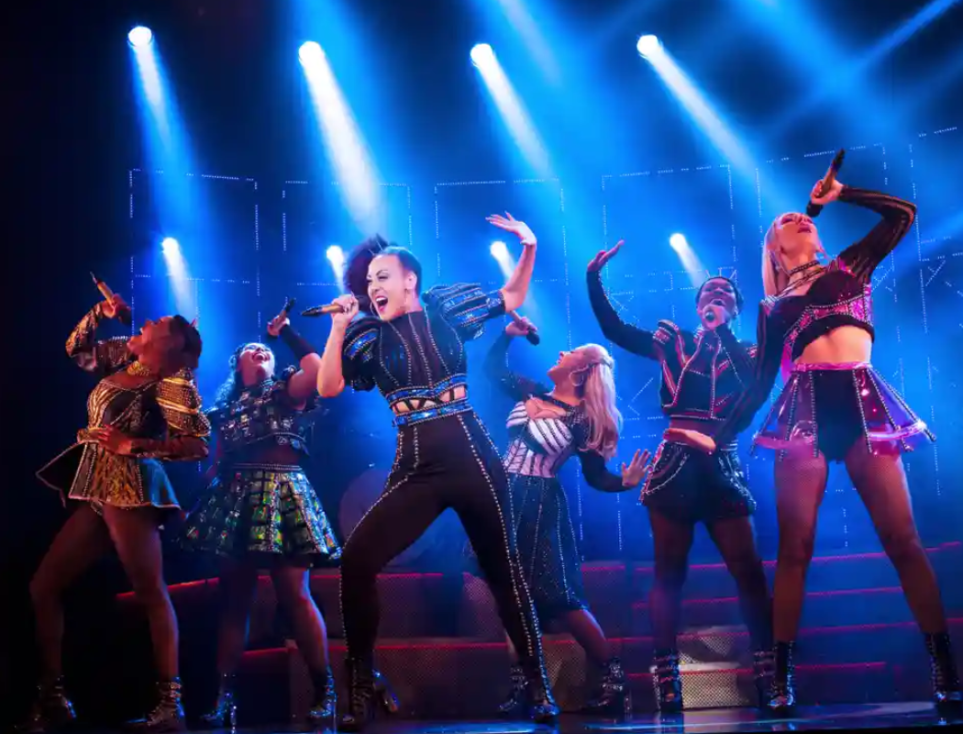This is a time when, you’d have hoped, we can all come together to applaud the theatre that has come back, even as it has now suddenly and summarily gone away again in most areas of England, as further Tier 3 restrictions were rolled out across great swathes of England last Saturday, prohibiting audiences from gathering to attend live performances entirely.
According to Sky News, as of last Saturday, a total of 38 million people are now living under Tier 3 restrictions – 68% of England’s population. Later the same day, Boris Johnson brought some of the same territory under even more extreme Tier 4 restrictions, with Wales also now under the same terms from yesterday, and Scotland set to follow on December 26. According to health secretary Matt Hancock, this new lockdown could well last for a couple of months, at least, until the vaccination is rolled out more widely. (According to Hancock, “unfortunately, this virus, the news strain, was out of control. We’ve got to get it under control and…the only way we can do that is by restricting social contact.”)

So that’s the theatrical recovery, which was taking baby steps until last Monday with some of the West End back in business, scuppered for the foreseeable future. This includes a brand-new play that was due to open in the West End last Wednesday, The Comeback (a title that is heavily ironic now), but which suddenly invited the press in early when a lockdown looked likely, and the all-too-brief return of established West End hits like Six and Everybody’s Talking About Jamie.
Yesterday, Susannah Clapp reviewed two of these shows in her column in The Observer. and I tweeted a link to them. 
It elicited this reply from an actor called Sunita Hinduja, appearing on my twitter stream.

Another actor Lewis Reeves replied: “Aren’t these two very different and diverse shows? Sorry if I’ve totally missed something.”
Hinduja replied, “Diverse to each other yes. But representative, no. After the year just gone, I really hoped this would be a priority for our community. Over feeling like there isn’t true meaningful space on the commercial stages for everyone.”
I, in turn, pointed out: “To be clear, one show is a two-hander, created AND performed by the two men who wrote it; the other DOES have a diverse cast. Also, Six is a returning show, not a new one, so has not been created in the wake of the year gone by (though it DOES, as noted, embrace diversity.”
Now Hinduja pivoted: “One was new to the West End post BLM and the other was returning — with a glow up, starring a diverse group of women, defo agreed. Both reviewed together. To the general public, they both looked new, in light of all we have learned this year, the new one doesn’t seem very 2020.”
It’s hardly an individual show’s fault for finding itself reviewed by a critic in the same column (particularly on a Sunday, when critics regularly merge two or more shows in to one column). Also, as I pointed out in response, there are very specific reasons behind the choices in presenting both.”At which point she finally came clean about the source of her grievance: “Our industry had a choice this year, on how to respond to BLM, it highlighted our own systemic workforce issues and gaps in the audiences. I don’t think the voices of two young white men needed a West End place in this moment.”

The other person replies, “I think it’s a little to say that this show is wrong because the cast is two white men. And [Six] is an all-male lead production with diversity throughout the entire cast. Nothing wrong with either of them. Good luck to them both, they equally deserve the stage and also need their fellow professionals support.”
She duly responds: “Am not wishing either of them bad luck… but I am so sick of feeling marginalised in an industry that I have grafted hard in for 20 years. This was the moment for change if it was truly wanted. I fear it isn’t.”
But as I replied, The Comeback had bad luck without her assistance. It closed the night before it was due to open, when Tier 3 restrictions were announced to arrive just last Wednesday morning at 00.01. So critics were hastily summonsed to attend last weekend.”
But there’s a wider problem at play here than one show’s fate, and that’s how it has fuelled a sense of grievance amongst this minority performer. One show successfully getting a West End outing has upset her for symbolic reasons, which seems grossly unfair to the Pin, the comedy duo who are making their West End debuts in it.
They cannot carry the disappointments of others on their (possibly privileged) shoulders. The West End may need to up its game; but in the last few years, it could be argued that it actually has. A set of commercial producers, including Trafalgar Theatre Productions, Jonathan Church Productions, Eilene Davidson and Audible for instance, seized on Arinzé Kene’s solo show Misty to move it from the Bush to the Trafalgar Studios in 2018; last year, the Young Vic’s Death of a Salesman moved to the Piccadilly.
Sonia Friedman, who is lead producer on the development and transfer of The Comeback since its origins as an Edinburgh Fringe show in 2018, has in recent years also been responsible for bringing the UK premiere production of Katori Hall’s The Mountaintop to the West End, and then on to Broadway; as well as the majority-Asian cast musical Bend it Like Beckham to the West End. Not to mention the West End and New York transfer for the diverse stories of The Jungle about Calais refugees.
So it feels peculiarly ill-placed to criticise the currently ill-fated transfer of The Comeback by stating, “I don’t think the voices of two young white men needed a West End place in this moment.” It shouldn’t be either/or. It should be both. Producers have and are taking significant steps to address this.

